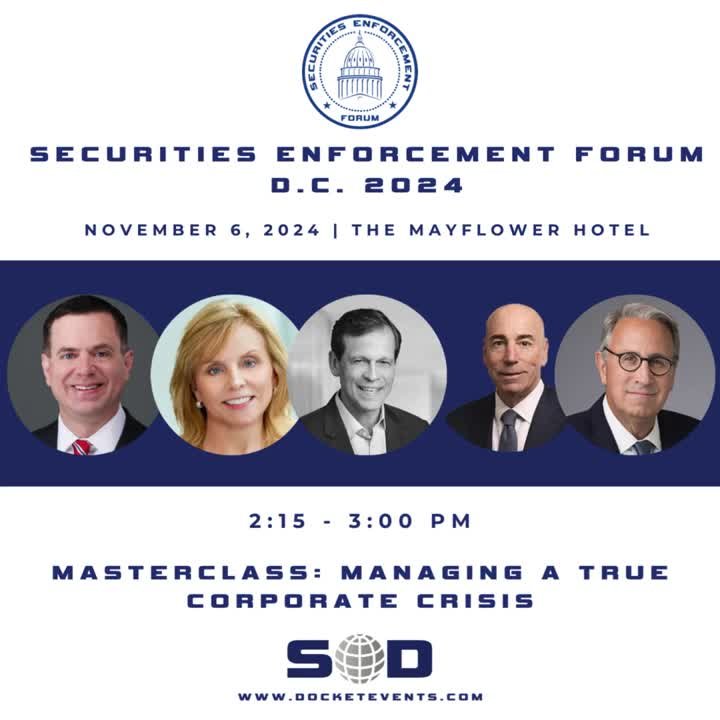

18 States Sue SEC and Gary Gensler for Alleged ‘Regulatory Overreach’ on Crypto
The Securities and Exchange Commission (SEC) and its Chair, Gary Gensler, are facing significant legal pushback from 18 Republican attorneys general, who have filed a lawsuit accusing the agency of overstepping its regulatory bounds in its enforcement actions against the cryptocurrency industry. The lawsuit, led by Kentucky Attorney General Russell Coleman, is a pivotal moment in the ongoing battle over the future of crypto regulation in the United States.

FBI Seizes Polymarket CEO’s Phone Following Trump Election Prediction
Federal authorities have raised eyebrows with a high-profile seizure of electronic devices from Polymarket CEO Shayne Coplan’s Soho residence. The early-morning raid occurred just a week after Polymarket, a decentralized prediction market platform, accurately forecast Donald Trump’s presidential election victory. This incident has sparked debate over the potential political motivations and broader regulatory implications for decentralized finance.

Gary Gensler Releases Statement Hinting at Resignation as SEC Chair
In a surprising turn of events, SEC Chair Gary Gensler has hinted at a potential resignation, marking a significant moment in the world of financial regulation. Speaking at the Practising Law Institute’s 56th Annual Institute on Securities Regulation, Gensler delivered a reflective address, acknowledging both the achievements and controversies of his tenure. His remarks have left industry insiders speculating about the future of the SEC, especially as the agency grapples with the rapidly evolving landscape of cryptocurrency and financial technology.

SEC Trends - November 2024
As the Securities and Exchange Commission (SEC) continues to evolve its examination and enforcement priorities, fund managers are increasingly in the spotlight. The SEC’s National Examination Program plays a critical role in promoting compliance, reducing fraud risk, and informing regulatory policy—all while serving as a key source of enforcement referrals. With these trends in mind, fund managers must be vigilant and prepared. Here’s what to watch for in 2024 and beyond.

A Second Trump Administration: Implications for the Securities Industry
With Donald J. Trump’s return to the White House confirmed on November 6, 2024, the financial industry is preparing for sweeping regulatory changes. From the banking sector to private funds, stakeholders are crafting detailed wish lists, hoping to shape the new administration’s economic and regulatory agenda. Trump’s victory is set to usher in a more business-friendly environment, with Wall Street and asset managers eagerly anticipating reforms.

Trump Hints at Recess Appointment for SEC Chair as Bitcoin Nears $90,000
The recent election of Donald Trump as the next president of the United States has sent shockwaves through the financial world, with Bitcoin and other cryptocurrencies experiencing an unprecedented rally. Bitcoin, the world’s largest cryptocurrency, hit a record high of nearly $90,000, buoyed by expectations of a more crypto-friendly regulatory environment under Trump’s leadership. The surge comes as Trump hints at making sweeping changes to the Securities and Exchange Commission (SEC), including replacing Chair Gary Gensler through a controversial recess appointment.

SEC Crackdown: Key Enforcement Trends in Cyber Disclosure, Director Independence, and Reg FD
The U.S. Securities and Exchange Commission’s (SEC) Division of Enforcement has intensified its focus on significant areas of compliance for public companies. Recent actions have targeted cybersecurity incident disclosures, director independence misrepresentations, and violations of Regulation Fair Disclosure (Reg FD). Here’s what you need to know about these developments and how they could impact your company.

SEC Division of Examinations 2025 Priorities
In a November 4, 2024, risk alert, the Division of Examinations (the “Division”) of the U.S. Securities and Exchange Commission (SEC) unveiled its strategic, risk-based approach to selecting registered investment companies for examination. The Division also shed light on its methodology for scoping exams and shared notable examples of common deficiencies encountered during recent reviews.

Navigating Complex Exemptions: SEC Compliance Questions on Securities Act Provisions
Professionals often encounter nuanced questions about SEC registration requirements under the Securities Act. This compliance blog addresses selected Securities Act provisions, focusing on real-world questions frequently posed by issuers navigating exempt offerings, dividend distributions, and registration complexities. Let’s explore common scenarios and their SEC guidance, covering Sections 2(a)(3), 2(a)(4), 2(a)(11), and 3(a)(9) as well as recent insights on securities offerings, transfer procedures, and beneficial ownership.

Compliance Guide: Disqualification of Felons and Other "Bad Actors" from Rule 506 Offerings
In 2013, the SEC introduced "bad actor" disqualification provisions under Rule 506 of Regulation D, implementing Section 926 of the Dodd-Frank Act. This compliance guide provides a comprehensive look at how these provisions impact issuers seeking to rely on Rule 506 exemptions, covering disqualifying events, exceptions, waiver processes, disclosure requirements, and transitional considerations.

Waivers of Disqualification under Regulation A and Rules 505 and 506 of Regulation D: Understanding Key Requirements and SEC Review
In the U.S. securities framework, issuers often rely on exemptions like Regulation A and Regulation D to raise capital without registering their offerings. However, certain disqualifying events can bar a company from using these exemptions, particularly if there has been past misconduct involving the issuer, its officers, or significant shareholders. This guide will explore the disqualification rules for exempt offerings, when waivers may be available, and the factors that the Securities and Exchange Commission (SEC) considers when reviewing waiver requests.

Securities Enforcement Forum D.C. 2024: Examining Enforcement in a Shifting Regulatory Landscape
The Securities Enforcement Forum in Washington, D.C. has become an annual fixture for professionals navigating securities enforcement. This year’s conference on November 6, at the Mayflower Hotel, promises to provide a nuanced examination of regulatory shifts and enforcement priorities in the wake of the U.S. election.

Choosing the Right Cap Table Platform: A Guide for Entrepreneurs
A well-maintained cap table is the unsung hero of a successful startup. It’s not just a table—it’s a complete, precise, and evolving record of your company’s ownership structure, from shares and options to complex vesting schedules and SAFE notes. Your cap table reflects each owner’s economic interest, voting rights, and claim to future profits. And when managed correctly, it’s a core asset that keeps your company’s foundations rock-solid, allowing you to focus on growth without fear of surprises or costly fixes down the road.

The Impact of Technology on Securities Markets: A Legal Perspective on the SEC’s Report
The SEC’s recent report to Congress on the impact of technological advances in securities markets isn’t merely a catalog of tech developments; it’s an inventory of how these tools alter the market’s fundamental mechanics—and, yes, its regulatory challenges. If the 20th century markets were defined by floor traders, telephone orders, and paper filings, the 21st century has swiftly evolved into a digital arena dominated by algorithms, blockchain, and AI. The upshot? We’re witnessing a market that’s faster, more accessible, and potentially more transparent, but also laden with new regulatory wrinkles. Let’s examine what the SEC has to say about this digital transformation and its implications for legal compliance, investor protection, and, well, market stability.

15 Essential Legal and Financial Considerations for Entrepreneurs and Start-Ups
Embarking on a new business venture is exhilarating, but success in today’s competitive market requires more than just a great idea. Laying the right legal and financial groundwork from the outset can mean the difference between thriving and merely surviving. From choosing the ideal business structure to safeguarding your intellectual property, the right decisions early on protect your assets, attract investors, and set your business on a path to sustainable growth. Here’s a roadmap of 15 critical legal and financial considerations that every entrepreneur should prioritize to create a solid foundation and inspire confidence in stakeholders.

Under the Radar: SEC Penalizes Adviser for Weak MNPI Controls in CLO Trades
Managing MNPI risk is no longer just about avoiding direct trades on inside information; it’s about creating robust, tailored safeguards that address the way MNPI can impact related investments, particularly in intricate vehicles like CLOs. With the SEC placing renewed focus on MNPI in credit markets, now is the time to ensure your compliance protocols are more than just routine. This article unpacks the SEC’s action against Sound Point and provides essential takeaways for investment advisers on avoiding similar pitfalls.

Companies Seeking Capital—Be Wary of “Consultants” and “Finders”
For smaller companies and startups seeking to raise capital, encountering consultants or “finders” who promise to connect them with potential investors is common. While these individuals may offer valuable introductions, companies must carefully consider the legal framework surrounding these services. Engaging unregistered individuals in capital-raising activities can lead to regulatory and legal consequences that can jeopardize the success of the funding round and the company’s future growth. However, a legally compliant path exists for certain “finders” to operate without triggering registration as a broker-dealer.

Trillium Capital Manager Sentenced to Prison for Securities Fraud in Getty Images Scheme
A Massachusetts-based venture capitalist, Robert Scott Murray, was sentenced today in Boston’s federal court for orchestrating a securities fraud scheme designed to inflate the trading price of Getty Images Holdings, Inc. (NYSE: GETY). Murray, 61, will serve 10 months in prison and two years of supervised release, as ordered by U.S. District Judge Denise J. Casper. Additionally, he faces forfeiture of $227,543 in illicit gains. Murray, who pleaded guilty in June 2024 to one count of securities fraud, had previously led several public companies, including Stream Global Services and 3Com, before founding and managing Trillium Capital LLC.

SEC Charges The Lovesac Company and Former Executives with Accounting Violations Over Concealed Shipping Expenses
The Securities and Exchange Commission (SEC) recently announced charges against The Lovesac Company, a publicly traded furniture retailer based in Connecticut, as well as two of its former executives, Donna Dellomo, CPA (the company’s former CFO), and Yoon Um, CPA (the former controller), for alleged accounting violations. These charges stem from unreported shipping expenses that allegedly skewed the company's financial records and metrics. Lovesac has agreed to settle the claims, including a civil penalty payment of $1.5 million.

Tether CEO Acknowledges Vulnerability to U.S. Government Control Amidst Renewed Scrutiny
As Tether, the largest stablecoin issuer in the crypto market, faces increasing regulatory pressure, CEO Paolo Ardoino recently underscored the company’s complex relationship with U.S. authorities in an interview with CoinDesk. Despite Tether's compliance with international sanctions and cooperation with law enforcement, Ardoino acknowledged that the company’s survival ultimately depends on the discretion of U.S. regulators. "If the U.S. wanted to kill us, they can press a button and kill us anywhere,” Ardoino stated, adding that Tether’s approach is not to challenge U.S. authority directly.
